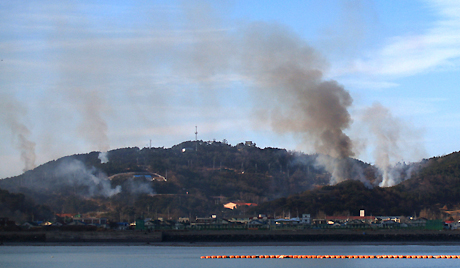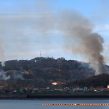
North Korean Tantrums, Russian Geopolitical Dilemmas and De-escalation
Publication: Eurasia Daily Monitor Volume: 7 Issue: 219
By:

The crisis on the Korean Peninsula has marked a new dimension of the media, once again confirming Marshall McLuhan’s observation that “the media is the message.” In this case, it was the international press offering global coverage to WikiLeaks releasing US State Department cables. These documents have, of course, affected all manner of US relations globally, but in the case of the current crisis on the Korean peninsula, they managed to create an alternative understanding of the current situation as one brought on by increasing instability in North Korea as a result of economic collapse and the onset of a succession crisis associated with the declining health of Kim Jung II and the capacity of his anointed heir and young son, Kim Jong-un. The WikiLeaks documents were quickly brought to bear on the current crisis. Indeed, Sovetskaya Rossiya republished without comment an article from The Daily Beast, which identified the nine most shocking WikiLeaks secrets and included leaks on Chinese and South Korean policy towards this succession crisis as leak number eight (Sovetskaya Rossiya, November 30).
From Moscow’s perspective the most important leaks concerned Beijing’s frustration with Pyongyang for “acting like a spoiled child” –not that such a sentiment might be common in the higher reaches of the Chinese foreign policy establishment, but that Deputy Foreign Minister, He Yafei, had shared it with his US counterparts in April 2009 after North Korea had launched a ballistic missile despite the advice of China. Of even more interest were the statements made by South Korean diplomats about China’s acceptance of the reunification of North and South Korea under the auspices of the US on the basis of the North’s economic collapse and its current political instability, suggesting that there would be no risks of a wider war should the south march north (Kommersant, December 1). This analysis directly contradicted the declared logic of the experts interviewed by Igor Petrushov, who had stated that Beijing, Washington, and Moscow each for their own reasons would resist any precipitous actions to bring about the unification of the peninsula (Trud, November 29).
Krasnaya Zvezda devoted a lengthy article to the interview by Prime Minister, Vladimir Putin, on CNN’s Larry King Program, and presented Putin’s recommendations for the appropriate course of “patience and a correct tone” for interested powers to take in order to defuse the current crisis. Echoing the official position of the People’s Republic of China (PRC) on the need for consultations, Putin characterized the situation on the Korean peninsula as “sharp and alarming.” Moscow was concerned because the crisis was transpiring in the direct vicinity of its own borders, as Putin noted: “We are very much counting that good sense will come out on top and suppress emotions so that a dialogue can begin.” Putin admitted that there were mixed results regarding eliminating North Korea’s nuclear weapons program through the Six Power talks. Yet, Putin still insisted that dialogue had to be the first step towards restoring a positive trend. Putin insisted that each power brought its own levers to influence the situation and specifically noted China’s economic influence on the peninsula, suggesting that Beijing had economic leverage in both Pyongyang and Seoul. When Larry King suggested that the powers would be correct in their course of action if they considered the highest priority “the interests of the Korean people in both north and south,” Putin emphasized the need to achieve a unified position among the six powers: “A unity of approaches is a very important guarantee of general success” (Krasnaya Zvezda, December 3).
In an extended article on cyber strikes as the revolutionary weapon of future conflicts, Aleksandr Drabkin compared their potential to that of the terrorists’ use of passenger aircraft on 9/11 as weapons of mass destruction. The current release of classified military and diplomatic information by WikiLeaks, according to Drabkin, should be treated as such a cyber strike. Indeed, Drabkin warned that in the context of the long record of hostilities and military confrontations on the Korean peninsula, the current crisis is precisely an environment where such a strike could have the most dangerous consequences. The content of the materials published by WikiLeaks presented a compelling case for a Republic of Korea (ROK) government that was eager to strike the North because the situation was never so favorable The author admitted that the South Korean authorities denied any such intent, but then cited the decision of US naval forces in the area to cancel a marine landing exercise because of bad weather, which the author considered a convenient fiction to mask Washington’s desire to avoid any further provocations in an already tense situation. Drabkin warned of the tensions that resulted from the deployment of a US task force in the Yellow Sea in close proximity to North Korean forces, but very near the territorial waters of the PRC, which could provide the opportunity for a cyber strike to which all affected parties would be forced to respond. In this case, Drabkin seemed to be referring to some action that would fatally disrupt command, control, communications or computer systems in a crisis situation. Given the existence of a limited North Korean nuclear arsenal, such a cyber strike could lead to unforeseen and unintended consequences. Drabkin warned: “a cyber attack on any of the groupings of forces operating in the region (US, South Korean, Chinese, or North Korean) can bring about great misfortune” (Pravda, December 3).
In the final analysis, the old hands from the Russian foreign ministry took the most prudent position regarding WikiLeaks disclosures on the Korean situation. In response to the request from a reporter from Izvestiya for comments, an unnamed source in the foreign ministry said: “First we have to review the content of the documents as to what is really there. Meanwhile, there is nothing to comment upon. In the case of something relating to Russia, it is important to study the original documents because there could be some large-scale provocations” (Izvestiya, November 30). In an article devoted to China’s call for multi-power consultations on the Korean crisis, its author, Aleksandr Samokhotkin, outlined the content of the WikiLeaks on US diplomatic traffic relating to Chinese policy and speculated that its disclosure might make Chinese diplomats less candid in their conversations with their US counterparts. Moreover, the author reported that the spokesman for the Chinese foreign ministry declared that the revelations in WikiLeaks should not create any kind of obstacle to PRC-US relations (Vremya Novostei, December 1).




